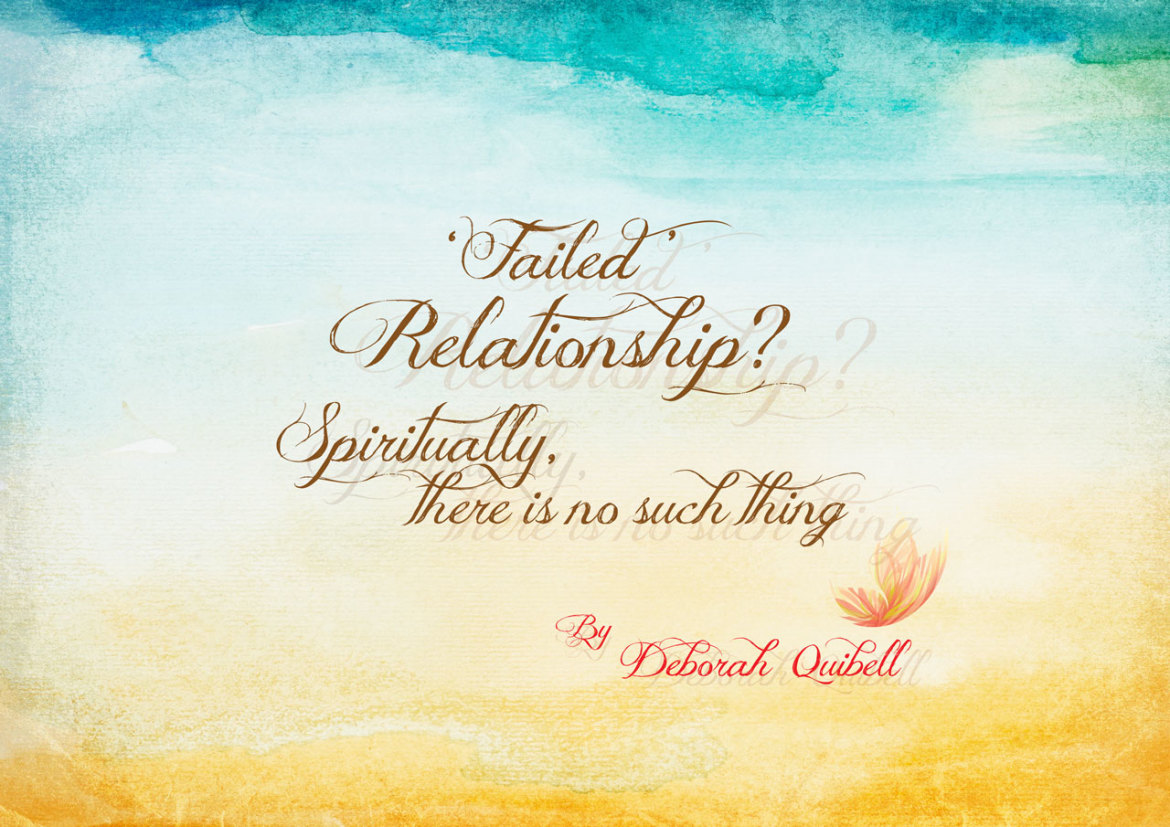
28 Sep Failed Relationship? Spiritually, There Is No Such Thing
Your task is not to seek love, but merely to seek and find all the barriers within yourself that you have built against it.
Rumi
There are tender places in the heart—scars, regrets, insecurities, doubts, and questions—that have somehow compiled over our many years of love and relatedness. However, in our spiritual development, our wounds are often our most valuable assets. The relationships that we define as external “failures” are often the seeds to more consciousness and internal beauty.
In order to accumulate inner wisdom from “failed” relationships, we must first be willing to practice deep levels of self-honesty. Self-honesty is not a practice of critique, regret, and making an endless list of our weaknesses. That is deflating and energetically counter-productive. Self-honesty must be accompanied with self-acceptance—knowing that we are all spiritual beings on a path of evolution. Evolution implies mistakes. None of us are perfect. Once mistakes are made, we can only gently unpack the lessons to the best of our ability, and try to bring more awareness to our patterns of behavior. In doing this, we choose to see “failures” as opportunities. We begin to understand that the dark soil is often the most fertile.
Relationships fail for a variety of reasons. As spiritual aspirants, our work is not to obsess and dissect every detail of our character and the other person’s character— finding blame and explanation, which leads to a potential harboring of resentment towards ourselves or the other person. At some point, we have to drop the questions of why?—Why did this happen to me? Why didn’t this work? Why must I deal with this?—and begin to ask questions of what? What really happened here? What lesson must I learn from this? What is causing me to feel this way? What is underneath this? What can I take from this situation? When we walk away asking those “what?” questions, the relationship has not failed. In fact, it has propelled deep layers of reflection that cannot help but translate into deeper layers of self awareness. Some would define this as a major tenet on the spiritual path.
However, it is not always easy to answer those questions. We may contact dark aspects of our nature. But what helps in these moments is the understanding that we cannot have light without darkness, and our internal work is not only about contacting our beauty, but also shining consciousness upon our shadow. Carl Jung wrote, “There is no coming to consciousness without pain,” and “Even a happy life cannot be without a measure of darkness, and the word happy would lose its meaning if it were not balanced by sadness. It is far better to take things as they come with patience and equanimity.”
Patience is, indeed, a necessary aspect to tend the fertile soil of a failed relationship. The failed relationship is the “seed” and we cannot expect a small seed to sprout and bear fruit in a short amount of time. It must be tended to, nurtured, and gently watered. It is a process of self-revelation which is sure to bear fruit should we choose to allow reflection and change over time.
In this process, our biggest trap is to get stuck in analyzing and blaming the other person. We cannot change anyone but ourselves. About conflict, Master Choa Kok Sui always used to say, “It takes two hands to clap.” And so, regardless of the situation or particularities of the relationship, the only thing we can reflect upon and change is our own part, our own areas of unconsciousness, our own weaknesses. When we do, we enter our next or other relationships with more consciousness and self-awareness. We are able to understand what our emotional wounds are, and communicate that to the other person in the relationship. Thus, our relationships become filled with deep tides of honesty and consciousness, and our deep wounds no longer fester and sabotage our way of relating to others, but become truly beautiful marks of our ever-evolving being.
The wound is the place where the light enters you.
Rumi
By Deborah Quibell


